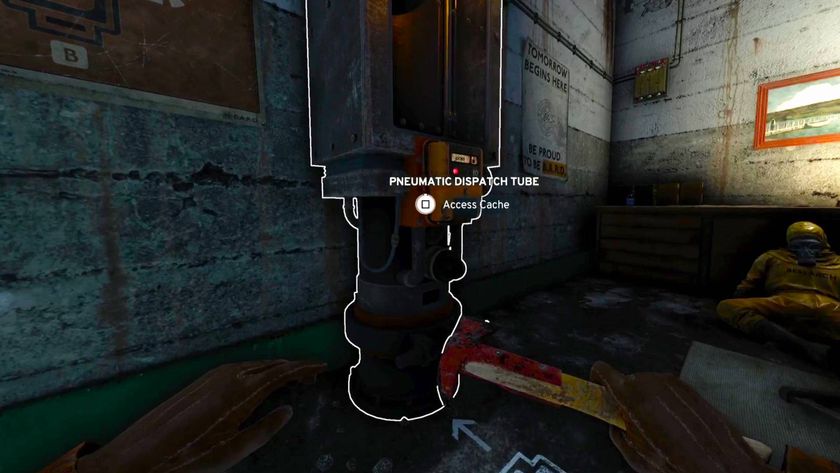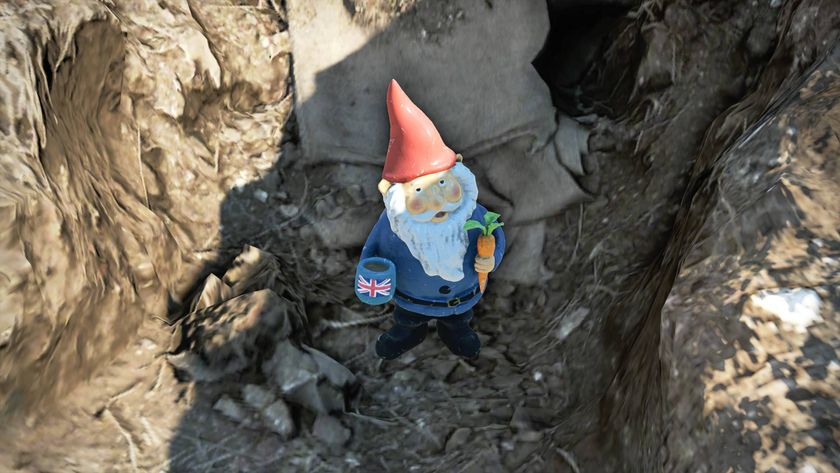Crysis Warhead - first look
Controversial developer Crytek shocks and awes with the next adventure in its Crysis saga
With pre-production for Warhead having started in February 2007, it’s unlikely that Crytek imagined then that Crysis would become a lightning rod for controversy. Now, Crytek is acutely aware of it. But it’s also clear that the team wants to make its core audience happy, and if at first it didn’t succeed, it’ll try, try again. Will Warhead perform well enough to guarantee that the Crysis saga continues? Like you, we’ll find out toward the end of the year, but this writer remains as bullishly optimistic as the battle cry of one of Warhead’s grunts: “See ya at the victory parade, mother f****r!”

Interview:Cevat Yerli
Recently, you’ve said that Crysis was [among] the most pirated games. How do you know that?
Well, we went into the Torrent statistics and there were charts for this. We learned that [piracy] harmed Call of Duty 4 quite a bit, too. We were hit even stronger because our spec requirements were, when we released, pretty high. There was a statistic that there were around 15–20 [pirated copies] per one copy sold; it doesn’t mean we would sell 15–20 times more, of course, but at least if piracy was lower, we would double our sales. For the PC this is a big issue, because if [piracy] continues like this, you will not see PC exclusives happening, because it’s prohibitively expensive.
Overall, our sales were good - I mean, they weren’t excellent, but we did break even... we did profit from the game despite the high development budget. We are okay with the results, but it’s not excellent. We had hopes it would do better. [EA says] sales surpassed expectations, and EA was happy, and we are happy. I’m just not happy with the fact that... with a game like this, because it’s exclusive, it should drive more [sales]. I don’t want to talk about Crysis 2 - it may come, it may not - but [its development] will depend greatly on Warhead’s success.
What would you say to someone like Brad Wardell, the president of Stardock, who argues that if you make a good game for the PC, it’ll sell well even if it is pirated?
I don’t agree with him. If your PC game pushes the need for upgrading hardware, then the gamer will [have to] choose, “Should I spend my money on hardware or software?” It’s a very easy choice, because software you can copy, hardware you cannot. This is where we got harmed. With Warhead, I think it will work differently. There’s a base of people who have the PC equipment [capable of running Crysis], and I hope this time, they’ll be honest enough to buy the game.
Sign up to the 12DOVE Newsletter
Weekly digests, tales from the communities you love, and more
You say that Warhead’s success will determine whether Crytek makes PC exclusives in the future.
Yes, it’ll have a huge impact. I’m not saying we’ll give up on the PC. The question will be, how online will we be [using online authentication], and how many other platforms will we support in the future. We did announce CryENGINE 2 for the PS3 at GDC, so we have development there, but it is not Crysis-related.
The concern for PC gamers is that cross-platform development means that the PC versions will be dumbed-down in gameplay and graphics.
I think there is a different target audience for the console market. I wouldn’t say dumbed-down, but you have to distill the experience to make it easier to access, and you have to limit the number of options you have. If we were to do a multi-platform title, then the way we would approach it is that there would be a design team that works on the console experience and a design team that works on the PC experience.
What about technology? Would you continue to push PC hardware?
I think we wouldn’t be Crytek if each platform didn’t have its technology pushed.
Jun 27, 2008













